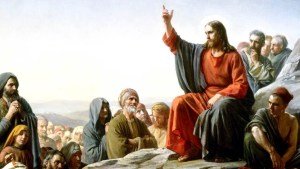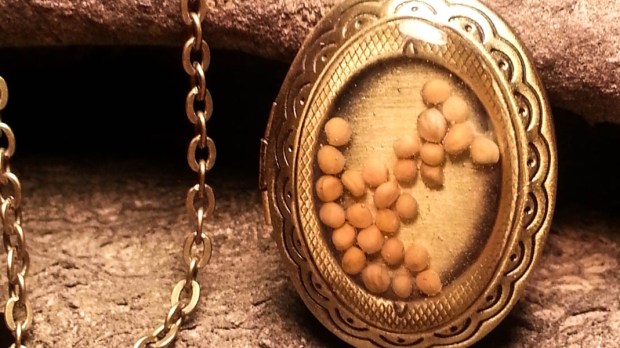Jesus, teaching his disciples, tells them that the Kingdom is like a mustard seed. When planted, the mustard seed is among the smallest. If you’ve never seen a mustard seed, it’s smaller than a peppercorn! But the Lord says, “once it is sown, it springs up and becomes the largest of plants and puts forth large branches, so that the birds of the sky can dwell in its shade.”
The mustard seed foreshadows Christ’s plan for the Church. Jesus first entrusted to his twelve disciples the sacred mission of preaching (Matthew 28:18-20) and forgiving sins (John 20:23). From those twelve and the friends who accompanied them, the Gospel, like a spark, began to spread. Now, two millenia later, there are believers of every tongue and race. The tree of faith is mighty. There is room for many souls to dwell in its branches.
Jesus uses the weakest, smallest things to accomplish his mission. The simple fisherman who began the Vicar of Christ on earth, Peter the Apostle, is a mustard seed. This one who was the least of all, who denied Christ three times, becomes the steward of Jesus’ Holy Gospel. He is the one entrusted with the work of caring for the good of the community of believers.
So one interpretation then, is that the mustard seed in Jesus’ parable is the Church. Another that the seed is the apostles. A third, is that Christ himself is the seed. St. Gregory the Great writes,
Christ Himself is the grain of mustard seed, who was planted in the sepulchre of the garden, and rose again a mighty tree. He was but a grain when He died; a tree when He rose again. A grain through lowliness of the flesh; a tree by the power of His majesty. A grain, because we saw Him, and there was no comeliness; but a tree because He was fairer than the children of men.
For St. Gregory, Christ is the seed, the Word that springs forth from the tomb. Like a grain, which must die before coming to life (John 12:24), the Lord’s death and burial are the chosen means for God to show forth his mercy and his power.
The branches of this tree are sacred preachers. And let us see how widely they are spread. For what is spoken concerning them? Their sound is gone out into all the earth, and their words unto the end of the world. The birds rest in their branches, because holy souls who lift up themselves from earthly thoughts by the wings, as it were, of virtues are refreshed after the fatigue of this life by their words and their consolations.
The work of preaching springs from the trunk of the tree. United to Christ, as the branches to the trunk, St. Gregory says that every preacher offers respite, a dwelling place, for weary souls. We must, therefore, encourage one another with the words of faith. We, disciples of Jesus, are called to be preachers of the Word, to provide a branch for souls to rest. And the only thing on this side of heaven that can bear the weight of the human heart is the Gospel of Jesus! Every other branch will wither, bend, and snap…every other teaching will wound and betray.

The mustard seed can therefore be interpreted as the Church, or even the disciples, like Peter, or as Christ. These understandings help to illuminate the mystery of Jesus’ parable, and aids us in coming to know the Lord better. And yet there is a fourth possibility.
Each Christian can be thought of as a mustard seed. Washed by our baptism, nourished by the font of grace, we are given life by the waters of heaven. Challenged, that is put under the pressure of this life, we are compacted, put to the test. Like a seed that breaks open to send forth its shoot, our hearts are pierced. The stony walls of our innermost self are broken open that new life might yield.
Christ will take our hearts and transform them. A simple grain, the smallest amount of spice, can make a very great difference in a recipe. We too are called to transform the world; to change, by our faith, the flavor of daily living. When the mustard seed grows, it aspires to reach heaven. Its branches stretch toward the sky, the things that are above. By embracing every Christian virtue we reach not for the things of this world, but always pursue those that are above.

